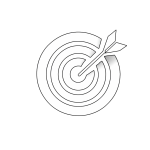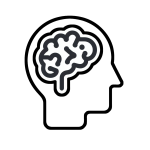Module 3: Historical and Philosophical Foundations
 Module 3 Outcomes
Module 3 Outcomes
- MLO 3.1: Explain the historical and philosophical foundations, and legal bases pertaining to the education of individuals with disabilities and its continual changes. (4j, 4o, 9j)
- MLO 3.2: Understand bias regarding students with disabilities, ways to reduce individual bias, and ways of understanding the discipline of special education. (4q, 5i)
- MLO 3.3: Integration of knowledge gained connecting to future roles and responsibilities. (9o)
Knowing and understanding the history of special education provides the background for how recent advances have happened, how far the field has come, and possibly ignite in you the spirit to continue to make changes for our children that need the most by being one of those who can provide the best. In this chapter you will be creating an interactive timeline for the history of special education from Itard in the 1800’s to present day. You will meet and explore key philosophers and changemakers in the special education field and be introduced to the legal aspects of special education and key laws that provide the backbone for student rights.
 Preparing to Learn
Preparing to Learn
Before you read
- How were people with disabilities treated in the past?
- What happened to recognize that people with disabilities have rights?
- Who were the people involved in making positive changes for people with disabilities?
- Are people with disabilities treated differently in present times?
Knowledge. The teacher understands major concepts, assumptions, debates, processes of inquiry, and ways of knowing that are central to the disciplines s/he teaches.
Disposition. The teacher realizes that content knowledge is not a fixed body of facts but is complex, culturally situated, and ever evolving. S/he keeps abreast of new ideas and understandings in the field.
Knowledge. The teacher understands laws related to learners’ rights and teacher responsibilities (e.g., for educational equity, appropriate education for learners with disabilities, confidentiality, privacy, appropriate treatment of learners, reporting in situations related to possible child abuse).
Disposition. The teacher recognizes the potential of bias in his/her representation of the discipline and seeks to appropriately address problems of bias.
Knowledge. The teacher understands the ways of knowing in his/her discipline, how it relates to other disciplinary approaches to inquiry, and the strengths and limitations of each approach in addressing problems, issues, and concerns.
Disposition. The teacher understands the expectations of the profession including codes of ethics, professional standards of practice, and relevant law and policy.
